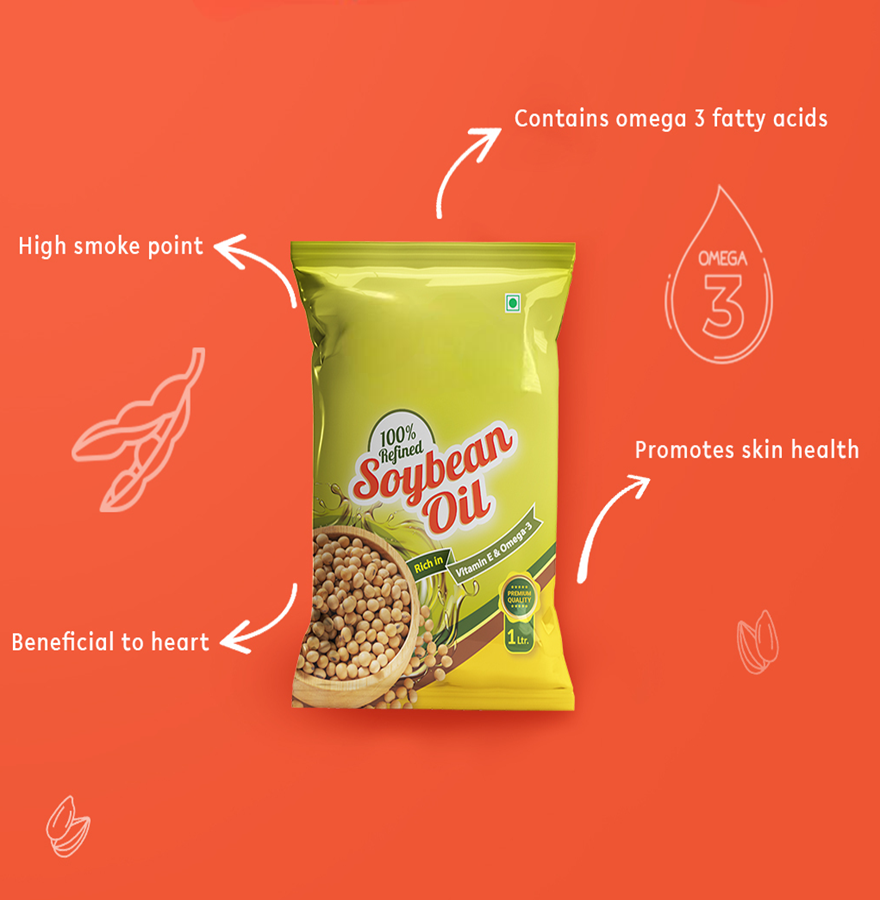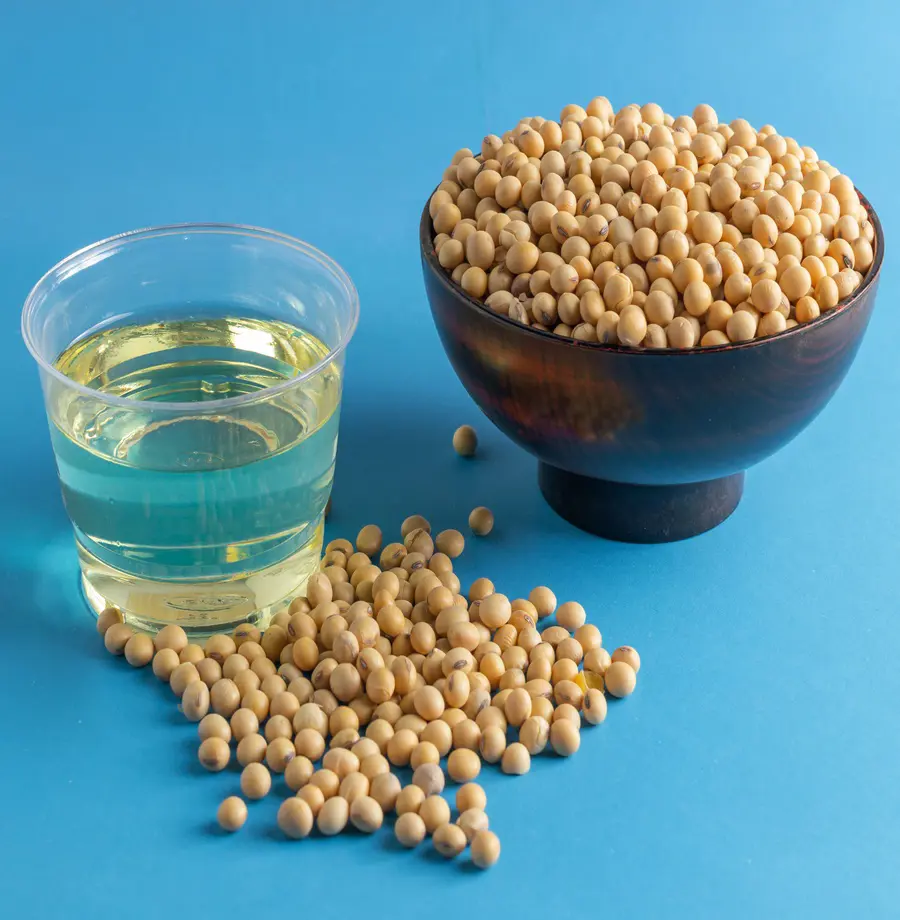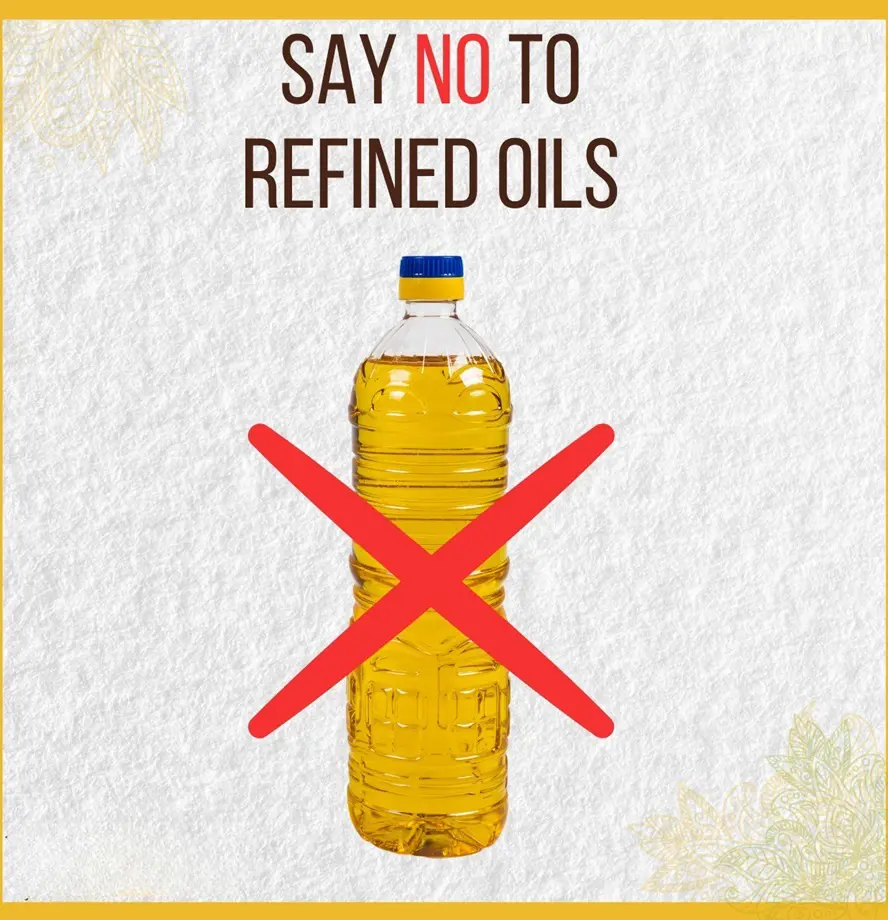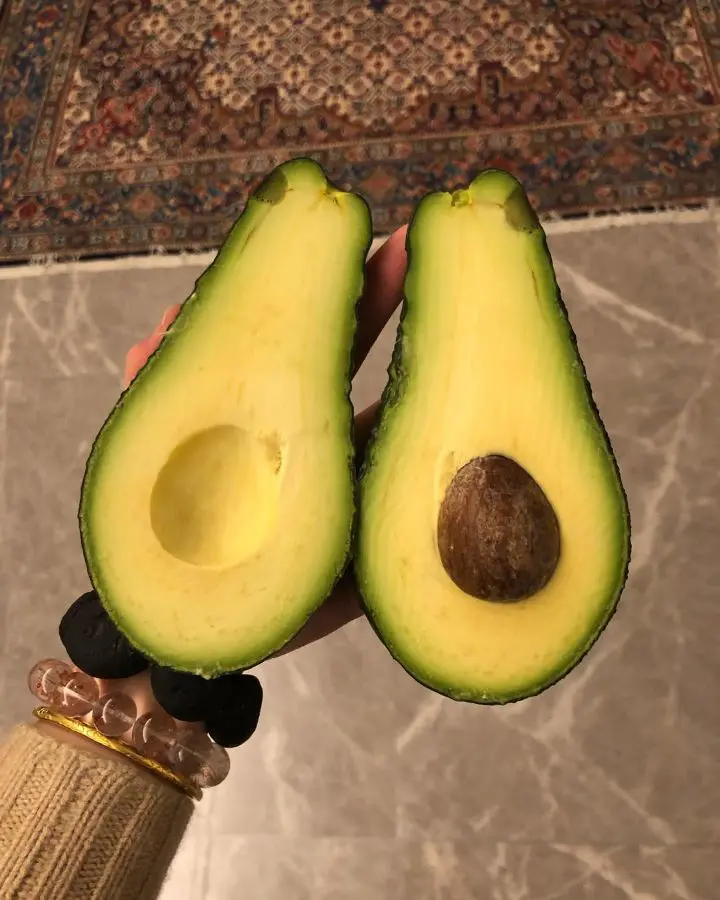Is Soybean Oil Healthy? Good Vs. Bad

This post may contain affiliate links. If you make a purchase through links on our site, we may earn a commission.
Soybean oil is a well-known cooking oil, preferred in kitchens around the world. This oil stands out in every corner of the world for its mild flavors and versatility, however, when it comes to its healthiness the topic becomes debatable mainly because of its composition.
On the one hand, soybean oils are known to have healthy fats and on the other, they are believed to have some potential risks due to unwanted components which mustn't be overlooked. So, is soybean good or bad, we will break down the good and bad aspects of soybean oil here so you can understand its place in a healthy eating plan.
Why Is Soybean Oil Preferred In Cooking?
Soybean oil is a preferred vegetable oil option in kitchens around the world. This oil has a huge trade percentage in global vegetable oil exports, and due to this availability, it can be found almost in every corner of the world.
Besides the easy availability, soybean oils have been used in recipes that demand high-heat cooking, be it ordinary households or high-end restaurants. The abundance of polyunsaturated fatty acids (PUFAs) is what keeps these oils intact in high temperatures, and as a result, your foods won't smell burnt, which normally happens with other oils lacking PUFAs. The burnt smell appears when oil molecules break down and release unpleasant odors.
Some other reasons soybean oil is preferred in cooking include its mellow taste, which does not overpower the flavor of ingredients, and its longer shelf life. With all the advantages listed above, sunflower oil has really established itself as a staple in cooking, and by now no other oil has been able to replace it.
Health Benefits of Soybean Oil

Now, moving on to the health benefits of soybean oil, its components including polyunsaturated fatty acids (PUFAs), which make up about 60% of oil, benefit our health. Let's have a look in detail:
Has Heart Healthy Fats
The total 60 percent of PUFAs present in soybean oil is composed of about 50% of omega-6 fatty acids and 5 to 7 percent of omega-3 fatty acids. Both of these compounds are important to make the heart healthy.
Omega-6 fatty acids do not let the bad cholesterol (LDL) levels go up in our blood. Low LDLs mean a lower risk of heart disease. The omega-3 fatty acids on the other hand help in lowering blood pressure and also reduce the chances of inflammation of cardiac cells. So, together, they help balance cholesterol levels and maintain proper blood circulation.
Bone Health
PUFAs, both omega-3 and omega-6 fatty acids, are known to improve bone mineral density, support bone formation, and reduce inflammation in the bones. PUFAs have been shown to influence the activity of bone cells, the ones that are involved in the bone-making process.
This benefit is more obvious in postmenopausal women as shown by studies. In such women, there is an increased rate of bone loss and a higher risk of osteoporosis due to a significant drop in estrogen levels.
Skin Health
Vitamin E, omega-6 fatty acids and omega-3 fatty acids present in soybean oil can keep our skin healthy. Vitamin E helps to keep the skin hydrated and also protects skin from the harmful UV radiation.
As it is a powerful antioxidant, the skin remains protected from any kind of stress. Furthermore, the chances of damage caused by any inflammatory processes decrease as the omega-3s and -6s are present in the soybean oil.
Overall, soybean oil can be a good part of the diet to keep skin youthful and to reduce any kind of inflammation.
Omega-3 Fatty Acids
Omega-3 fatty acids are known for their ability to support cardiovascular health. ALA, found in soybean oil, has been shown to help reduce inflammation, lower triglyceride levels and improve cholesterol balance by increasing HDL (good cholesterol) levels.
Omega-6 fatty acids, especially linoleic acid (the most common omega-6 found in plant oils like soybean oil), are vital for brain health and make a part of the brain cells. They also play an important role in the production of hormones.
Vitamin E Rich
Soybean oil is an excellent source of vitamin E, which is a powerful antioxidant that protects our body from free radicals. These radicals, if allowed to work, can damage our cells and accelerate aging and lead to the development of various health issues, including heart disease and cancer.
So, vitamin E, the potent antioxidant present in soybean oil can benefit by ceasing the effects of free radicals. Also, it protects the cells from external environmental stressors like UV rays and pollution.
Uses of Soybean Oil

Soybean oil is versatile because of its neutral taste, which allows it to be used in all sorts of cooking methods. The major ones are as follows:
- Frying: Any recipe that demands frying, to make foods crispy and golden, soybean oil is the perfect candidate to go for. Without burning your food, you can make French fries, fried chicken, or tempura, that also with perfect crunch every time.
- Baking: A vegetable oil suitable for baking, soybean oil helps keep baked goods moist and tender. So, it's perfect if you want your cookies, cakes, or any baked items to come out just right.
- Roasting: For this process, soybean oil can be the wonder you are looking for. When you roast meats or vegetables using this oil, you will get beautifully caramelized food on the outside.
- Sautéing: To sauté, soybean oil is a top pick. The oil heats up quickly and evenly, so sautéing ingredients like onions, garlic, or veggies in this oil will give you a satisfying result.
Potential Concerns About Soybean Oil

Soybean oil is healthy only if some points are taken into consideration. If the oil is consumed in excess, is not balanced with other types of fats and is not purchased inspecting the labels, then health risks are obvious. Let's have a look at the potential concerns associated:
Omega-6 Fatty Acids
Although we have mentioned how healthy it is to have PUFAs in soybean oil, the main concerns of consuming it are also related to this component. Yes, you heard it right, sadly, the disproportionately high content of omega-6 fatty acids, the major PUFA in soybean oil is what makes its consumption questionable.
The imbalance of omega-6 and omega-3 in the oil, healthy diets that need higher omega-3s, can invite various serious conditions. And to get rid of this, the diets around the world need to be mindful about balancing the intake of omega-3s and omega-6s.
Processed and Refined Oil

Soybean oil, like many other vegetable oils, often is manufactured by excessive processing and refining which helps to improve its shelf life, flavor, and appearance. However, this process makes the oil less nutritious.
The several steps the oil goes through can create a significant loss of beneficial compounds such as antioxidants, vitamins, and polyphenols.
Also, one of the biggest concerns when soybean oil is highly processed is the development of trans fats. These fats develop during the processing of the oil and are considered highly unsafe as they are linked with a number of heart conditions.
GMOs
The use of genetically modified (GMO) soybeans is common as this helps meet the demand for millions of tonnes of soybeans. The use of GMOs instead of natural soybeans has many health concerns and has only increased in recent years due to their widespread use.
The oils made using GMO soybeans equally increase the chances of obesity and fatty livers and on the other hand, also can increase the potential of suffering from chronic diseases related to different organs. So, if available, it's best to purchase soybean oils that have non-GMO labels on them.
Inflammation
Soybean oil is rich in omega-6 fatty acids like linoleic acid. The presence of excess omega-6s as compared to omega-3 fatty acids is what can cause problems here. In particular, more omega-6s have been linked with the development of autoimmune diseases.
Some studies have indicated that, over the past 100 years, our diets have seen a dramatic rise in the omega-6 to omega-3 ratio and one of the sole reasons for this is increased use of vegetable oils like soybean oil. This imbalance is thought to have increased the prevalence of chronic low-grade inflammation in the body including autoimmune diseases.
Calorie-Dense
A tablespoon (14 grams) of soybean has about 104 calories. This value is quite frightening if portion sizes are overlooked. Increasing the intake of soybean oil in the diet can hence lead to an excess of calories, which may contribute to weight gain over time.
The calorie-dense property however is not limited to soybean oil alone. A tablespoon of any oil generally contains around 100-120 calories, primarily from fats. So, whichever oil you are using for cooking, the importance should be given to controlling the portion size.
Soybean Oil Vs Other Oils

There are many vegetable oils that can be used in cooking, as a replacement for soybean oil. Some of these oils are healthier than soybean oil while some might pose even more risks due to the content they possess or the processing they go through.
Let's compare soybean oil with other vegetable oils.
- Olive oil: This oil is healthier than soybean oil in terms of heart-healthy fats and antioxidants. It also has a better omega-6 to omega-3 ratio. You can get unprocessed versions of olive oil, the extra virgin olive oil.
- Canola oil: This oil also has a better balance of omega-3 to omega-6 fatty acids. Similar to soybean oil, it also has less amount of saturated fatty acids and can be used in various cooking processes.
- Sunflower oil: Sunflower oil is less healthy than soybean oil in terms of omega-6 fatty acids. They are a good source of vitamin E but are mostly available as refined versions in the market. The refining process highly strips off the nutrients present originally in soybean seeds.
How To Make Soybean Oil A Part Of Healthy Diet?

After knowing the possible hazards that come up with the random use of soybean oil, it's important to take important measures to balance the amount for a healthy life. Here are some tips to take the benefits this oil has to offer:
Omega 6 and 3 Balance
If we compare the amount of omega-6 fatty acids and omega-3s in soybean oil, omega-3s are almost present in negligible amounts. And, what's been recommended is to maintain the intake of omega-6 to omega-3 fatty acids in the ratio of around 4:1, so this directly means consuming soybean oil as the only source of fat is not okay.
The only way to maintain the balance is to focus on adding omega-3 food sources like fatty fish, certain seeds and nuts to the diet. By maintaining the suggested amount, you would be from health hazards caused by over-intake of omega-6 fatty acids.
Moderate Use
Soybean oil is just another source of fat, so consuming more of it won't ever do good. A tablespoon of soybean oil has around 104 calories, so, if you're not mindful of portion sizes, the calories from oil can quickly add up.
While it’s a healthy fat option in moderation, too much can lead to excess calorie intake, and as a result, you may have to suffer from immediate weight gain.
So, it's important to use soybean oil in moderation and complete your daily recommended intake of fats by balancing with other fat sources.
Unrefined or Cold-Pressed Varieties
The choice of varieties that are minimally processed is what makes sense if you want that extra health boost.
The best form over the processed ones includes the unrefined or cold-pressed soybean oil that has all the nutrients of soybeans intact.
The heat or chemical treatments are little or even absent in unrefined oils and what's obvious in using them is that the flavors and the expected use in high heats don't get altered at all. So, by having all the antioxidants, healthy fats and vitamin E and avoiding the preservatives used, you can make soybean oils part of a healthy lifestyle.
Bottom Line
Soybean oil can be totally healthy, depending on several factors. The way the oil is consumed, its place in your overall diet, and the balance of other fats are what matters over here.
Soybean oil is rich in vitamin E, polyunsaturated fat content, and low in unsaturated ones giving us heart benefits but not to forget, it also has an imbalanced omega-6s and omega-3s ratio, making us prone to inflammatory conditions often linked with chronic diseases.
Though there are mixed views, it's possible to make soybean oil a part of a healthy diet. The things to be considered for this include moderation and balance with other fats. Also, to stay away from the oil that goes through vigorous processing methods, it's important to be discerning while choosing the ones that are unrefined and free from genetically modified soybeans.
Recent posts
Lifestyle
Lifestyle
How Much Caffeine Is in Green Tea
Green tea, a tea popular for its health benefits, comes with a gentle caffeine boost. Due to this low caffeine level, the drink can be considered perfect for those who want to stay alert without the jitters. The availability of caffeine in green tea ...
Lifestyle
The Benefits Of Avocado Seeds You Must Know About
After devouring the avocado, we have the habit of dumping the seed without giving it a second thought. However, this part of the fruit is just as essential as the avocado because it delivers numerous nutrients and potential health benefits that might...
Lifestyle
How Much Caffeine Is Too Much In One Day?
Without even realizing it, caffeine is stapling in our everyday lives. Our mornings usually begin with a cup of coffee, likewise, to get through the afternoon slump we might sip on an energizing drink or grab a refreshing soda on a sunny day to quell...
Lifestyle
How Much Water Should You Drink Per Day
Water makes up 60% of our total body weight, making it an essential component to maintain our health. As it is present in all cells and organs of the body, proper water intake means every function in the body is running well. There are multiple benef...
Lifestyle
What Happens When You Stop Eating Sugar
Sugar is one of the most widely consumed substances worldwide and, not to forget, in excess. The average intake of sugar in the USA exceeds the recommended amounts and that's what has contributed to the health havoc in the majority of the population....
Lifestyle
How To Eat Cactus Fruit Prickly Pear And What Does It Taste Like
Prickly pear, the unspoken hidden treasure in the list of fruits, is scientifically known as Opuntia ficus-indica and grows on the prickly pear cactus (Opuntia species). The appearance of this delight is very appealing and striking. By seeing its app...





